“One day, the king realized that the gold and silver in his treasury was running low. He became distressed and asked his minister for advice. The minister said without hesitation, “We will impose a new tax.” The king nodded in agreement and instructed his minister to implement his suggestion. Tax collectors began touring cities and villages, accompanied by police officers, forcing people to pay the new tax. Those who refused to pay were humiliated, beaten, and imprisoned. One day, the people’s patience ran out, and their anger exploded. They marched in a huge crowd toward the royal palace, their voices rising loudly and indignantly at the injustice. When the king learned of what had happened, he allowed a delegation representing the demonstrators to meet with him. He listened attentively to the moving pamphlet the delegation members had to say about hunger, prisons, taxes, and the unjust minister. He expressed his astonishment and disapproval at what he heard, and said in a trembling, ashamed voice, “How can I ask my Lord on the Day of Judgment? Can I oppress my subjects without even knowing it? I, who dedicated my life to serving the needy, the poor, the orphans, and the widows?!” He stood up and announced in a stern voice the dismissal of the minister from his position and the confiscation of his palaces and wealth as punishment for his injustice and out of respect for the will of the people. The delegation left the royal palace and informed the disaffected people of what had happened. They shouted joyfully, thanking the king for his support of justice and righteousness. However, the next day, the tax collectors continued their tour of houses and shops.
With this vision, Zakaria Tamer’s text opens up to scenes in which characters dressed in symbolic garb freely express social and economic concerns and the setbacks associated with a political reality that has shattered the constraints that could have strained the conscience of the ruler, reminding him of his limits and warning him against the transgressions that are killing his people.
Tigers on the Tenth Day
د.ا5.00
A collection of symbolic stories that addresses oppression and freedom through a sarcastic style and intense language.
Available on backorder
| Categories: | Literature, stories, Literary criticism, satirical literature |
|---|---|
| Tags: | literature, politics, stories, thought |
| Author | |
|---|---|
| Year | |
| Publisher | Riyadh Al-Rayyes Books and Publishing |
You may also like…
-
The Nightingale’s Prayer
د.ا5.00The novel tells a story of revenge that turns into love, revealing a woman’s struggle with social injustice in a conservative rural environment.
-
I Saw in What the Sleeper Sees
د.ا9.00This book contains a collection of short dreams that blend reality and symbolism, reflecting his reflections on life, politics, and existence.
-
Sea Prayer
د.ا12.00Sea Prayer is a poignant and poetic reflection on the suffering of refugees, told as a letter from a Syrian father to his lost child.
-
Spring in Ashes
د.ا5.00In “Spring in Ashes,” Zakaria Tamer presents satirical short stories that reveal the contradictions of Arab reality and the cruelty of power.
Related products
-
The blind and the deaf
د.ا2.13Ghassan Kanafani is a Palestinian novelist, storyteller, and journalist, and is considered one of the most famous Arab writers and journalists in the twentieth century. His literary works, including novels and short stories, were deeply rooted in Arab and Palestinian culture
د.ا3.55 -
The Alchemist
د.ا4.97The Alchemist (Portuguese: O Alquimista) is a novel by Brazilian author Paulo Coelho which was first published in 1988. Originally written in Portuguese, it became a widely translated international bestseller. The story follows the shepherd boy Santiago in his journey across North Africa to the Egyptian pyramids after he dreams of finding treasure there.
د.ا7.10 -
Umm Saad
د.ا2.13Ghassan Kanafani is a Palestinian novelist, storyteller, and journalist, and is considered one of the most famous Arab writers and journalists in the twentieth century. His literary works, including novels and short stories, were deeply rooted in Arab and Palestinian culture
د.ا3.55 -
For Bread Alone
د.ا4.97For Bread Alone , al-Khubz al-Hafi) is a controversial autobiographical work by Mohammed Choukri. It was written in Arabic in 1972 and translated into English by Paul Bowles in 1973.[1] In 1980, it was published in French as Le Pain Nu in a translation by Tahar Ben Jelloun. The novel has been translated into 39 foreign languages[2] and adapted into a French graphic novel by Abdelaziz Mouride [fr].[3]
د.ا7.10 -
Flower swordsman
د.ا7.10The Swordsman of Flowers is a collection of prose texts that combines irony and sadness and expresses issues of freedom and human oppression
د.ا8.52 -
The hat and the prophet
د.ا2.13Ghassan Kanafani is a Palestinian novelist, storyteller, and journalist, and is considered one of the most famous Arab writers and journalists in the twentieth century. His literary works, including novels and short stories, were deeply rooted in Arab and Palestinian culture
د.ا3.55 -
Pulse
د.ا12.00A novel that sheds light on the internal conflict between mind and heart, and addresses themes of love, sacrifice, and the search for self in a world filled with challenges.
-
Returning to Haifa
د.ا2.13Ghassan Kanafani is a Palestinian novelist, storyteller, and journalist, and is considered one of the most famous Arab writers and journalists in the twentieth century. His literary works, including novels and short stories, were deeply rooted in Arab and Palestinian culture
د.ا3.55

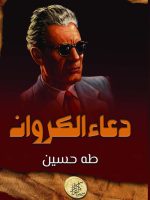
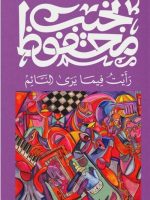
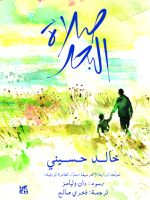
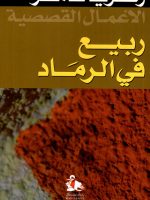

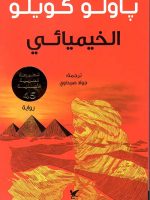
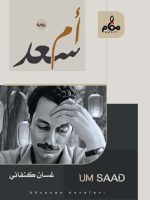
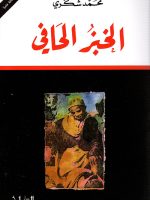
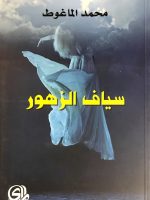
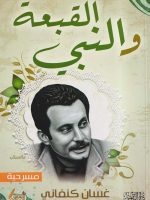
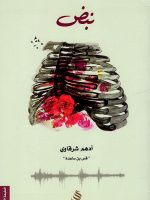
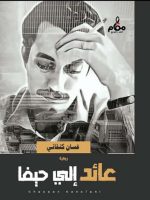
Be the first to review “Tigers on the Tenth Day”